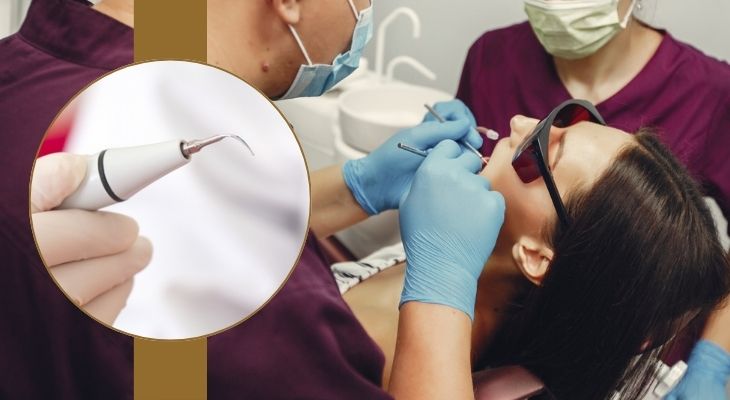
Achieve a Healthier Smile with Deep Dental Cleaning
Maintaining optimal oral hygiene goes beyond daily brushing and flossing. Deep dental scaling is an advanced cleaning procedure designed to remove plaque, tartar, and bacteria that regular oral care routines may miss. By investing in deep dental cleaning, you can prevent gum disease, tooth decay, and persistent bad breath, ensuring long-term oral health and a radiant smile. We at Veda Dentistry offer expert deep dental scaling in Delhi, India.
What is Deep Dental Scaling?
Deep dental scaling is a preventive and therapeutic procedure, also known as scaling and root planing, performed by a dentist to remove accumulated plaque and tartar from the teeth and beneath the gumline. Unlike routine cleanings, deep scaling reaches the deep pockets where harmful bacteria thrive, reducing the risk of gum disease progression.
A thorough oral evaluation is conducted before the procedure, where the dentist measures the gum pockets using a periodontal probe. If these pockets are deeper than 4mm and show signs of inflammation or bleeding, deep cleaning is necessary to prevent further deterioration.
The Deep Cleaning Procedure
Deep dental scaling is a minimally invasive but highly effective procedure that involves:
1. Plaque and Tartar Removal – Using a scaler, the dentist carefully removes stubborn plaque and tartar deposits, especially near the gumline and between the teeth.
2. Scaling and Root Planing – The surfaces of the teeth and roots are smoothed to eliminate bacterial toxins and encourage gum reattachment.
3. Multiple Sessions if Needed – Depending on the severity of gum disease, the procedure may require two or more sessions, followed by a post-treatment assessment.
When is Deep Cleaning Required?
Deep dental scaling is recommended for individuals experiencing:
Gingivitis (early-stage gum disease)
Periodontal disease (advanced gum infection with gum recession and deep pockets)
Persistent bad breath
Bleeding, swollen, or receding gums
Heavy tartar buildup
How Often Should You Get Deep Cleaning?
Dentists generally recommend deep dental cleaning once a year for optimal oral health. However, individuals with a history of gum disease may require more frequent treatments, ideally every six months, to prevent recurrence. Consulting your dentist will help determine the best schedule based on your oral health condition.
Key Benefits of Deep Dental Scaling
Tooth decay
Infection and inflammation
Gum disease progression
Tooth loss
Bone deterioration
Possible Risks and Considerations
Deep dental scaling is a safe and routine procedure, but some individuals may experience:
Temporary gum tenderness and sensitivity
Mild bleeding or discomfort, which subsides within a few days
Rare cases of gum recession in individuals with severe periodontal disease
Deep Dental Scaling Cost in India
The cost of deep dental scaling in India varies depending on factors such as the extent of tartar buildup and the severity of gum disease. For an accurate estimate, consult with Veda Dentistry, where our experts provide personalized treatment plans to meet your dental needs.
Take Charge of Your Oral Health Today!
Prioritizing deep dental scaling can enhance your smile, prevent serious dental issues, and promote overall well-being.
FAQs
1. Can teeth become loose after deep cleaning?
Deep cleaning itself does not loosen teeth. However, in cases where excessive tartar buildup previously masked the severity of bone loss, patients may feel increased tooth mobility after the procedure. This sensation is temporary and improves as the gums heal and reattach to the teeth.
2. Is deep cleaning painful?
Well deep cleaning is a non-invasive procedure, but due to more accumulation of plaque or tartar deep inside the gums, patients might feel sensitivity while cleaning, so the dentist will numb that area using topical anesthesia.
3. How to relieve discomfort after deep cleaning?
Mild soreness and sensitivity are common after the procedure. Dentists recommend:
- Rinsing with warm salt water
- Using a soft-bristled toothbrush
- Avoiding hard, spicy, or acidic foods
- Taking prescribed or over-the-counter pain relievers
Book a consultation with Veda Dentistry today and experience professional, high-quality care for a lifetime of healthy teeth and gums.


Book An Appointment